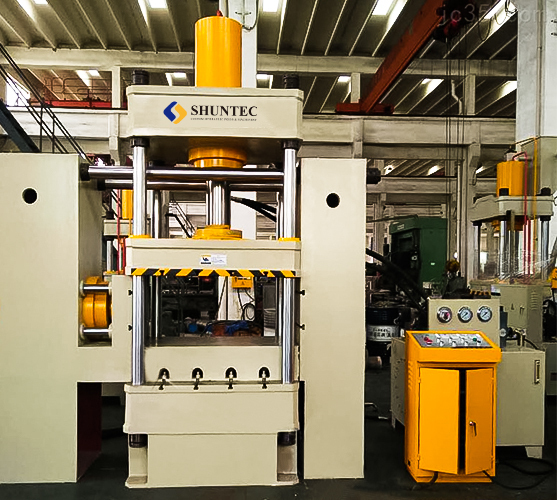1. Solvent heating and immersion
Immerse the parts to be cleaned in a cleaning tank with heating equipment (the heating temperature is generally 35~85°C), and pass compressed air or steam into the cleaning solution to make the cleaning solution dynamic, and the immersion time is 0.5~2h.
2. Spray washing
It is cleaned by a pressure jet machine, which is suitable for continuous operation in large and medium-sized factories and workshops. The prepared heated aqueous solution is sprayed and cleaned by a hydraulic press machine at a pressure of 0.3MPa through a corrosion-resistant pump.
3. Motorized scrubbing
Dirt can be removed with soft bristles to maintain component precision and low roughness. If the mesh oil filter uses a hard wire brush, it will sometimes damage the filter element or change the filter accuracy of the hydraulic press machine.
4. Ultrasonic cleaning
Ultrasonic waves of appropriate power are injected into the cleaning liquid to form tiny dot-shaped cavities. When the cavity expands to a certain extent, a partial vacuum is formed, and the circulating fluid fills the vacuum at a high speed, generating super strong sound pressure and mechanical impact force (i.e. cavitation) peels off the contaminants on the surface of the hydraulic system parts.
5. Acid treatment method
Different metal materials use different pickling solutions. After removing the pollutants on the surface of the hydraulic system of the hydraulic press machine, dip them in a solution composed of CrO3, H2SO4, and H2O to form a corrosion-resistant film on the surface.


